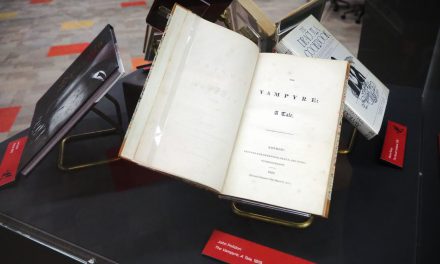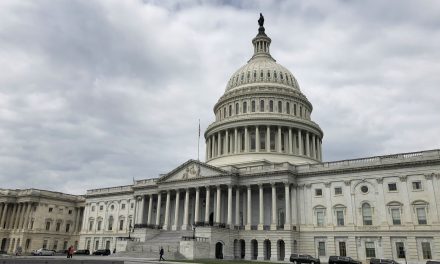After eight years at Emory, Provost and Executive Vice President for Academic Affairs Earl Lewis will be leaving the University in January 2013 to become president of the Andrew W. Mellon Foundation, the University announced last week.
In his position as provost, Lewis has served as the chief academic officer of the University and has acted “as the president’s primary liaison with the deans and faculties on … academic matters,” according to the Office of the Provost’s website. He has been responsible for coordinating activities among all of Emory’s schools as well as chairing the Ways and Means Committee, which determines the University’s annual budget and Emory’s priorities for funding. In addition, according to the Office’s website, Lewis has played a major role in faculty appointments and promotions as well as in supervising Emory’s educational policies.
“I’ve spent eight years here, and it’s been a tremendous eight years,” Lewis said. “I will miss all my colleagues and the institution and its students, but there is a time for transition at some stage in life … This is a new tremendous opportunity to continue some of the work I started at Emory but on a national level.”
Lewis will likely leave Emory in November or December, he explained, and in January will begin working at the New York-based Andrew W. Mellon Foundation, a private foundation that offers grants in higher education and scholarship, libraries and scholarly communications, conservation and the environment, museums and art conservation and performing arts.
He will become president upon the retirement of current President Don Randel next March. Currently a trustee of the Foundation, Lewis said he removed himself from the search process when trustees approached him about becoming a candidate.
In a May 2 University-wide email informing students of Lewis’ departure, University President James W. Wagner wrote that though he is sad to see Lewis leave Emory, he is thrilled to have worked with him.
“Emory University was fortunate to recruit a scholar of the first rank and a seasoned academic administrator to serve as our provost,” Wagner wrote. “Earl Lewis has served the University superbly since then, so it is no surprise that others would come to court him for themselves.” Noting that the Mellon Foundation awards about $230-250 million to institutions every year, Lewis said that when Foundation administrators approached him offering him the position, it seemed like a “once-in-a-lifetime opportunity.”
Anne Tatlock, the Mellon Foundation’s outgoing board chair, expressed excitement on behalf of the board that Earl Lewis has agreed to take on the position.
“[Lewis’] clear strategic thinking, ability to focus on the critical issues relating to the humanities, as well as his broad experience as a teacher, scholar and leader at major public and private research universities over more than two decades uniquely positions him to lead the Mellon in its mission,” Tatlock commented, according to a May 3 University press release.
During his tenure at Emory, Lewis hired seven of Emory’s nine deans, according to Wagner’s email. He also enhanced Emory’s libraries’ digital humanities scholarship while strengthening the University’s collection of literary works and archives, according to Wagner.
“Provost Lewis deserves credit for numerous accomplishments at Emory and beyond, many of which will have a lasting impact on who we are and what we do,” Claire Sterk, Emory’s senior vice provost for academic affairs, wrote in an email to the Wheel. “The provost touches the life of all at the university, especially the students and faculty.”
Wagner added that Lewis served as the chair of the Ways and Means Committee “through some of the most challenging years in nearly a century for our nation and for higher education,” in regard to the economic recession. Wagner additionally cited Lewis’ work with colleagues at other institutions to establish an online education consortium which has been “thoughtful and caring in laying a foundation for Emory’s greater impact in the digital era.”
In addition, Lewis also played a role in implementing Emory’s strategic plan, which is a compilation of Emory’s goals that aims to review Emory’s progress, and also oversaw Emory’s restructured undergraduate admissions programs.
“I believe we took on some tough assignments the past few years that I hope will make Emory a better place,” Lewis said.
The strategic plan, according to Charlotte Johnson, senior vice provost for administration, also led to the implementation of Campaign Emory, which aims to increase Emory’s endowment and provide financial resources for new facilities and programs.
“I am sad that he will be leaving Emory,” Johnson wrote. “However, the opportunity with the Andrew W. Mellon Foundation is a perfect match for his passion and vision.”
In regard to finding Lewis’ successor, Wagner wrote in his letter that he will be meeting and consulting with members of the cabinet and University deans before a search takes place.
– Contact Jordan Friedman.
The Emory Wheel was founded in 1919 and is currently the only independent, student-run newspaper of Emory University. The Wheel publishes weekly on Wednesdays during the academic year, except during University holidays and scheduled publication intermissions.
The Wheel is financially and editorially independent from the University. All of its content is generated by the Wheel’s more than 100 student staff members and contributing writers, and its printing costs are covered by profits from self-generated advertising sales.





